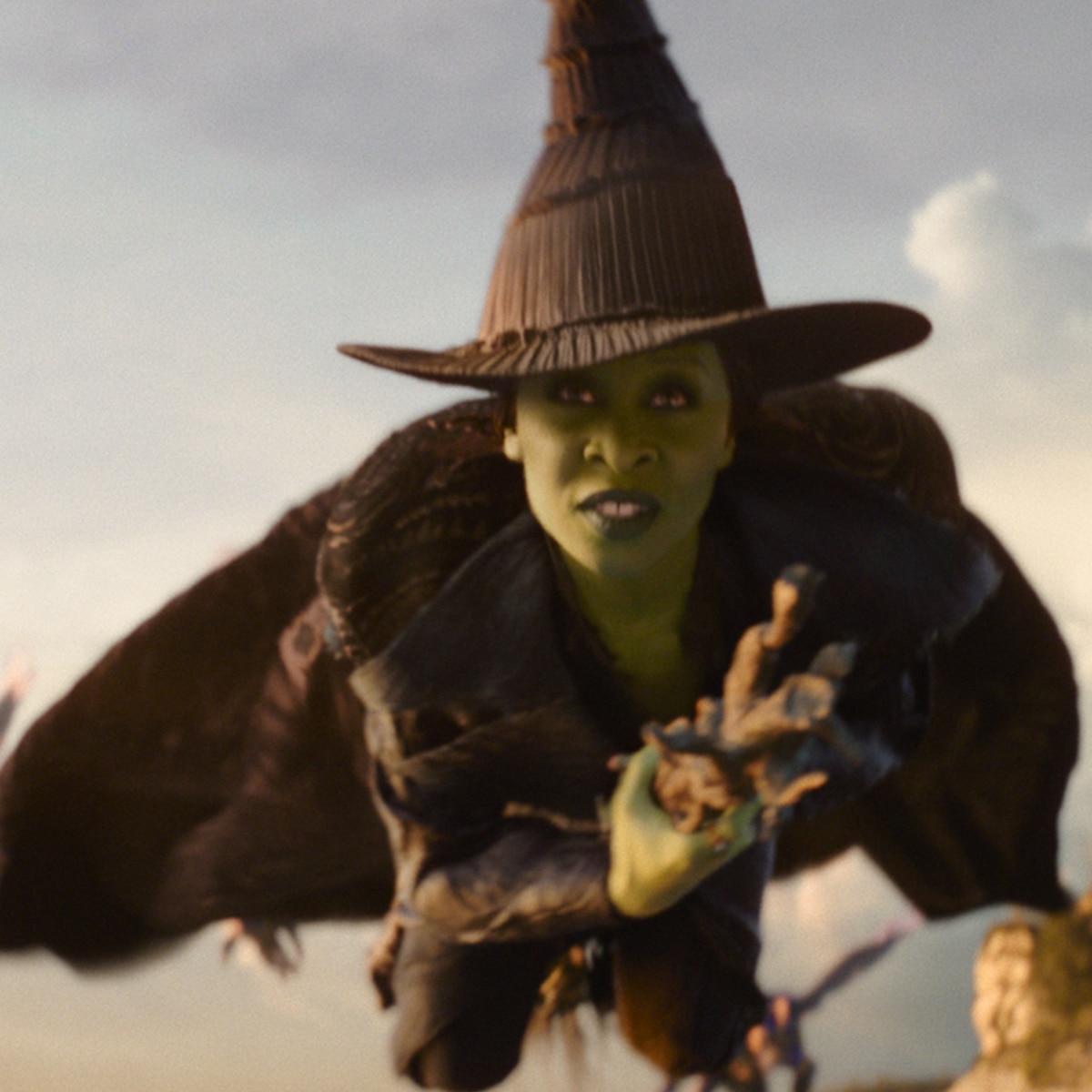
Dreams that fans dared to dream really did come true.
I’ve been following the development of Wicked: For Good so closely, and for over a year, everyone’s been wondering who would play young Dorothy! It was such a fun surprise to finally see the end credits roll and discover it was Bethany Weaver who got to wear the iconic blue checkered dress and sparkly ruby slippers. I was so thrilled for her – she’s going to be amazing!
Based in Surrey, England, this 30-year-old works as a choreographer, dancer, and actress. She recently choreographed the West End musical Asmahan, and for years has dreamed of being in Wicked. Back in 2022, she even posted on Instagram about actively working towards that goal!
Both the stage musical Wicked and the new film Wicked: For Good begin by showing the stories of Elphaba (played by Cynthia Erivo) and Glinda (played by Ariana Grande) before the events of The Wizard of Oz. However, the second half of the musical and the film then follow the same storyline as Dorothy’s adventure that begins in the original 1939 movie.
In the stage version of the story, Dorothy’s voice is heard, but she never makes a physical appearance. The movie shows Dorothy traveling down the Yellow Brick Road with her companions, but her face is never fully visible. Interestingly, Bethany, who plays Dorothy, has a few lines where she calls out to the Wizard (Jeff Goldblum), telling him to wait because she wants to return to Kansas.
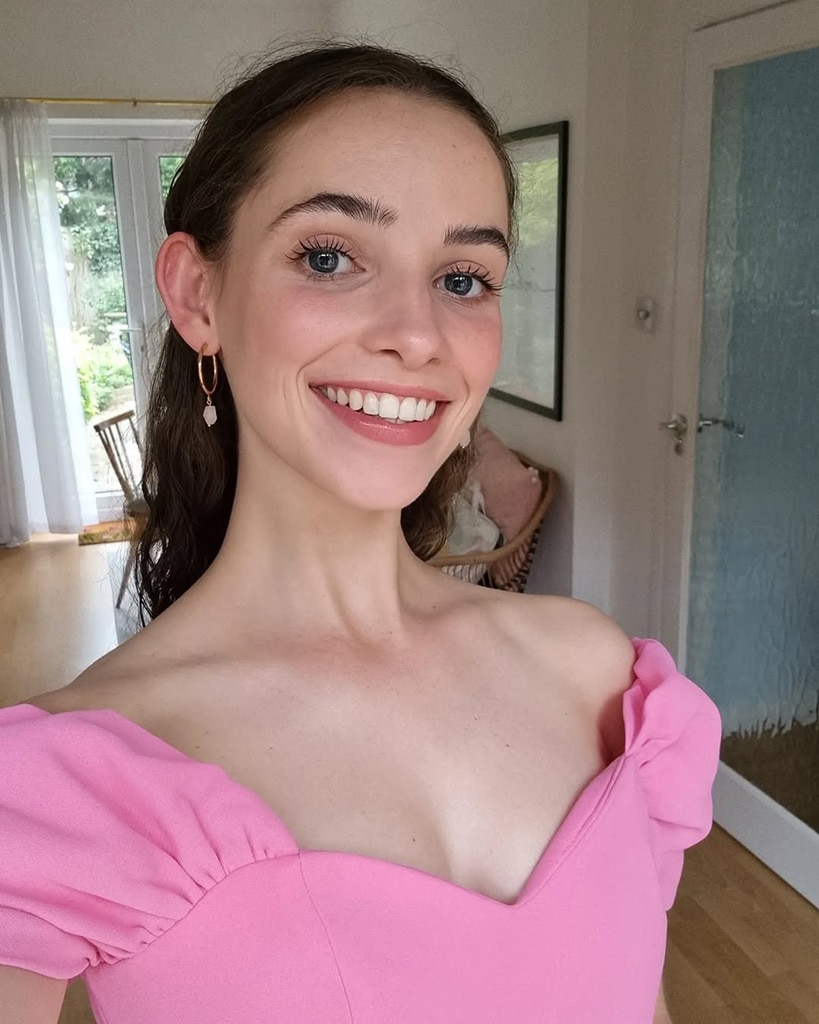
As a huge fan, I was completely in the dark about who would play Dorothy until Wicked: For Good finally came out on November 21st! Director Jon M. Chu actually made a deliberate choice to keep everything under wraps, and I think it built even more anticipation. It was a great move, honestly.
He explained to People magazine in October that he didn’t want to interfere with anyone’s existing idea of who Dorothy is or their expectations for the story. He emphasized that, ultimately, the story still centers on Elphaba and Glinda, and Dorothy is caught in between them.
Before the movie came out, some people wondered if Dorothy would have been a larger character. This speculation was fueled when Alisha Weir, known for her role as Matilda in the 2022 film Matilda the Musical, was rumored to be cast as Dorothy.
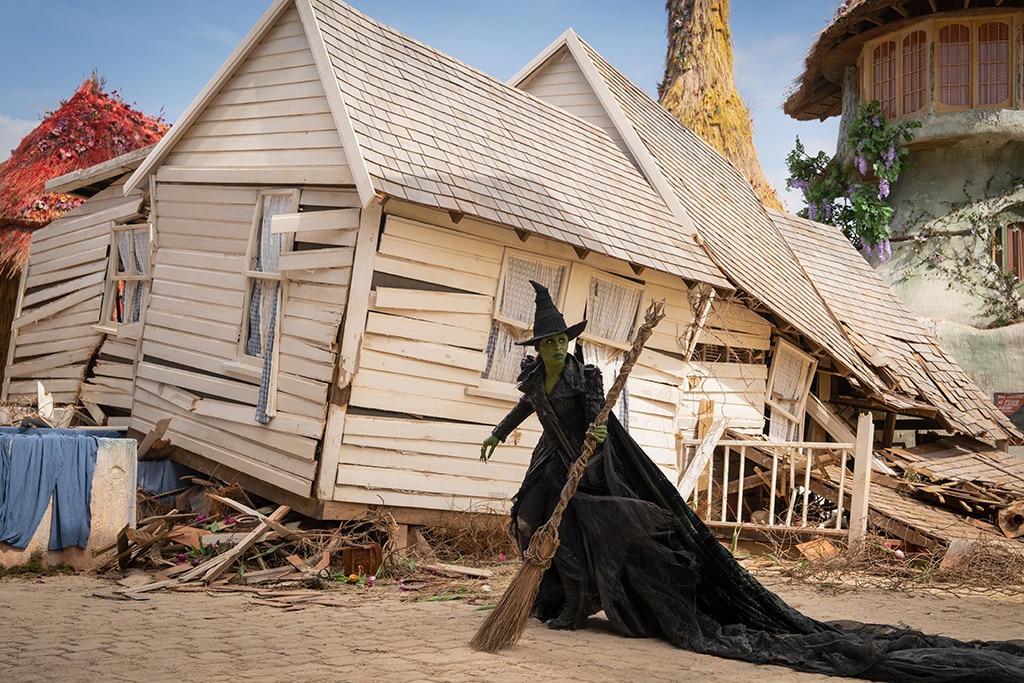
The teenager didn’t deny the rumors, and even seemed to enjoy the speculation when asked if she’d be in the movie.
I was chatting with someone at the Irish Film and Television Awards recently, and they were saying how amazing it would be to be involved with Wicked – and honestly, I couldn’t agree more! I’m a huge fan myself, and it would be a dream come true.
For more thrillifying changes between the Wicked musical and movies—and plenty of spoilers—read on.
I couldn’t believe it when I heard she might be in the movie! And honestly, she didn’t exactly deny it when people asked. She was so playful and mysterious about it, which just made everyone think it was true. It totally got me even more excited!
She told SPIN at the Irish Film and Television Awards in February that she’d be thrilled to be involved, saying she’s a huge Wicked fan.
For more thrillifying changes between the Wicked musical and movies—and plenty of spoilers—read on.
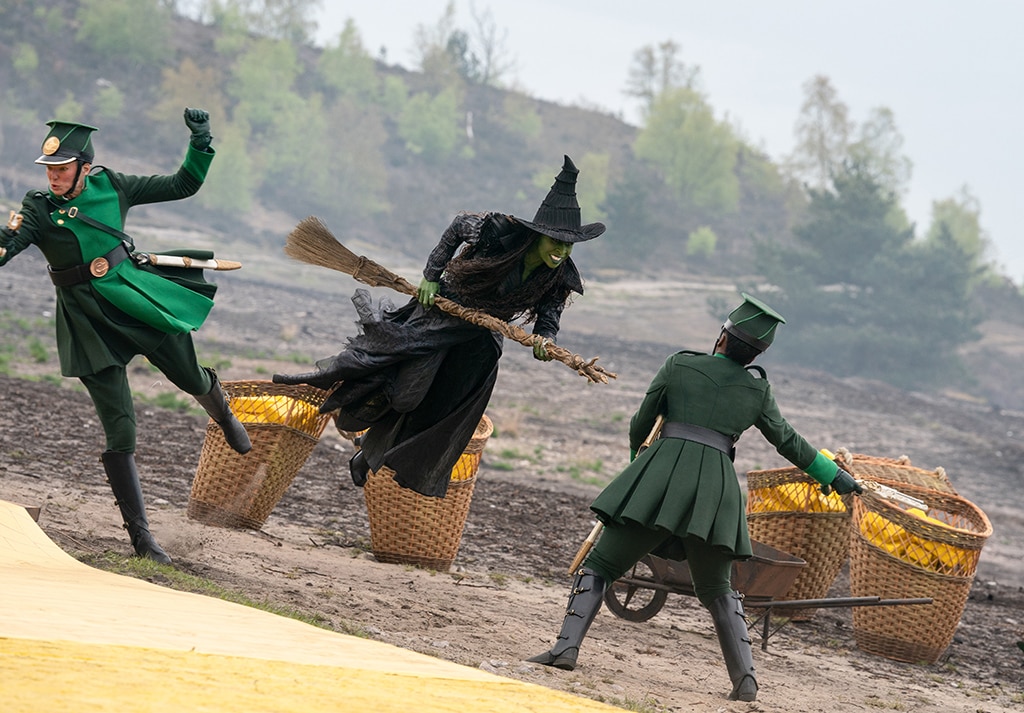
Wicked: For Good continues the story after the first film, where Elphaba (played by Cynthia Erivo) famously flew off on her broomstick, determined to use her powers to help the talking animals of Oz. The movie opens with Elphaba actively trying to prevent the construction of the Yellow Brick Road and rescuing captive animals.
The first song from the movie sequel, “Every Day More Wicked,” is also revealed. This is a longer version of the song that plays at the beginning of the musical, and it features the main cast – including Glinda (Ariana Grande) and Madame Morrible (Michelle Yeoh) – explaining how their characters have been handling the Wicked Witch of the West.
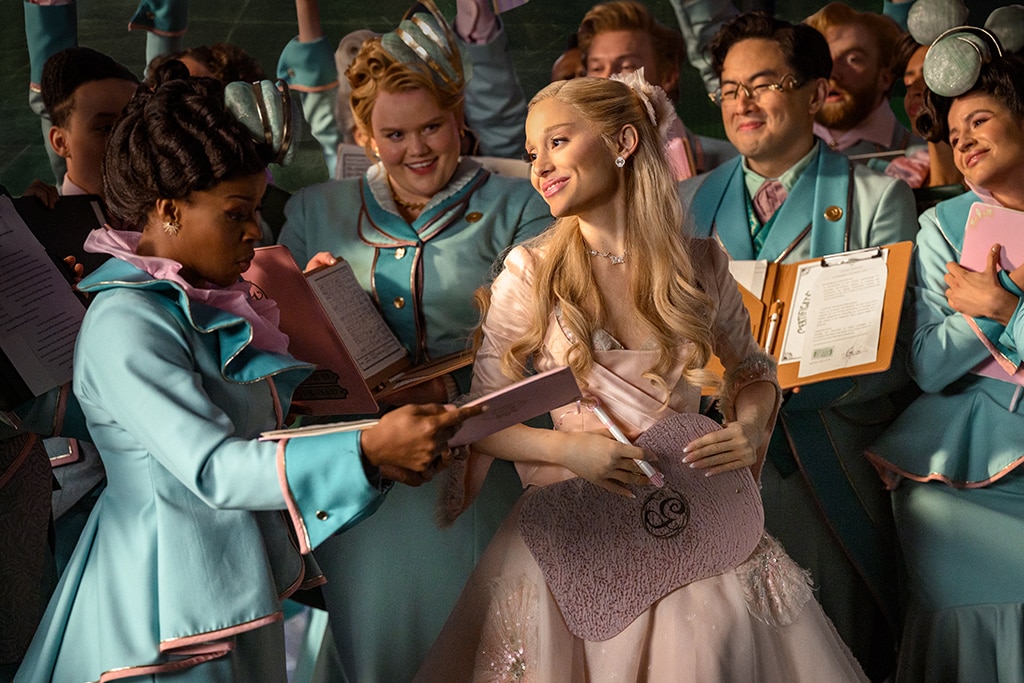
Similar to the stage show, the movie introduces Glinda as the public face of the Wizard of Oz. We see her receive her iconic bubble and wand, solidifying her status as the Good Witch. This scene includes a flashback to Glinda as a child, receiving a magic wand for her birthday and playfully attempting to use her powers. This mirrors a previous flashback of young Elphaba, highlighting the contrast: people were frightened by Elphaba’s abilities, while Glinda’s friends celebrated hers.
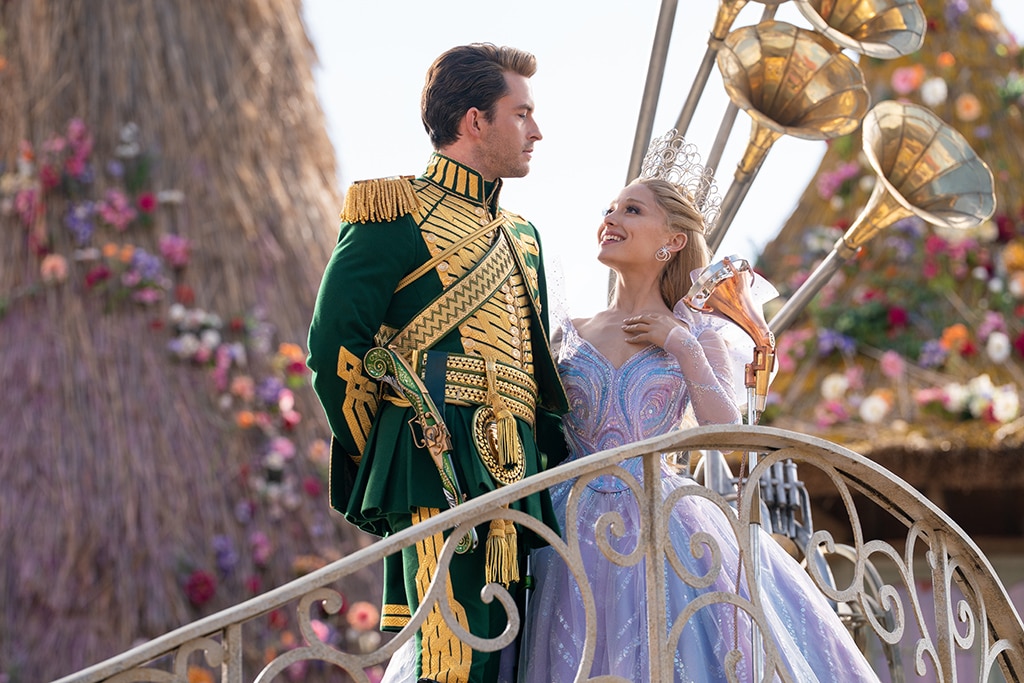
The song “Thank Goodness,” which starts the second act of the stage show, doesn’t appear until later in the movie. Instead, it’s used to mark the completion of the Yellow Brick Road and to celebrate the engagement of Fiyero (played by Jonathan Bailey, who is Captain of the Gale Force in the film) and Glinda. This celebration is different from the stage version because Elphaba interrupts it, trying to warn the people of Oz about the Wizard’s wickedness. She uses her broom to write a message in the sky, similar to the Wicked Witch in the original 1939 film, The Wizard of Oz.
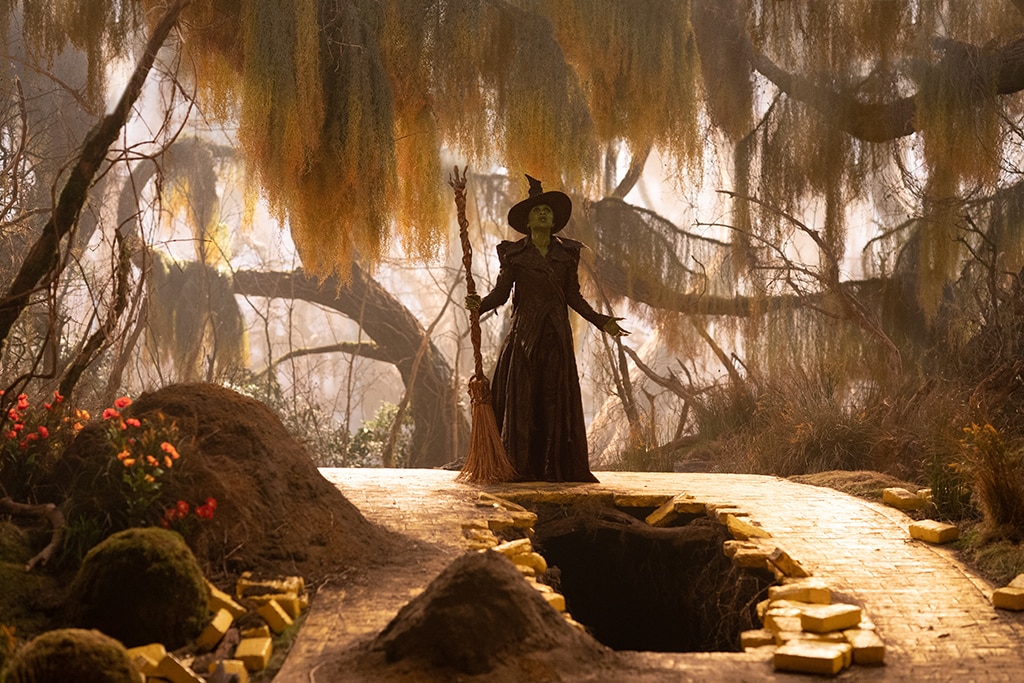
Elphaba has a heartwarming reunion with Dulcibear (Sharon D. Clarke) while trying to prevent the talking animals from fleeing Oz. During this scene, she performs a new song from the movie, “There’s No Place Like Home,” where she encourages them to remember the beauty of Oz and the importance of unity and kindness.
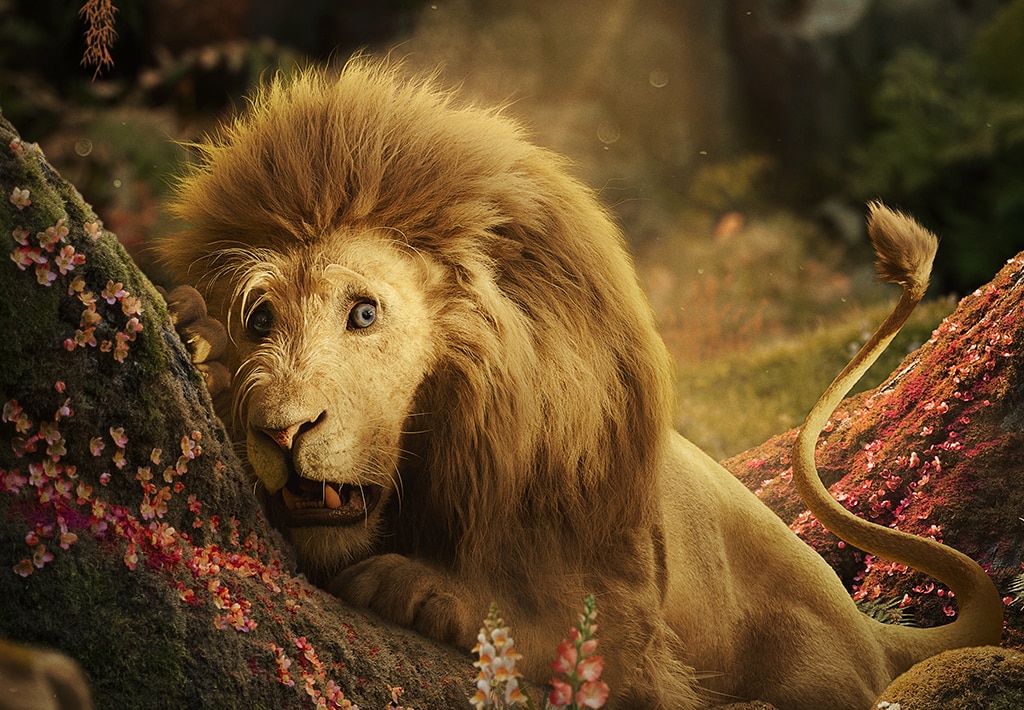
The Cowardly Lion, played by Colman Domingo, has a larger part in the movie than he did in the stage show—where only his tail was visible. The film reveals that he was the cub Elphaba and Fiyero saved from Shiz, and now, as an adult, he confronts Elphaba, blaming her for turning him into a coward by uprooting his former life.
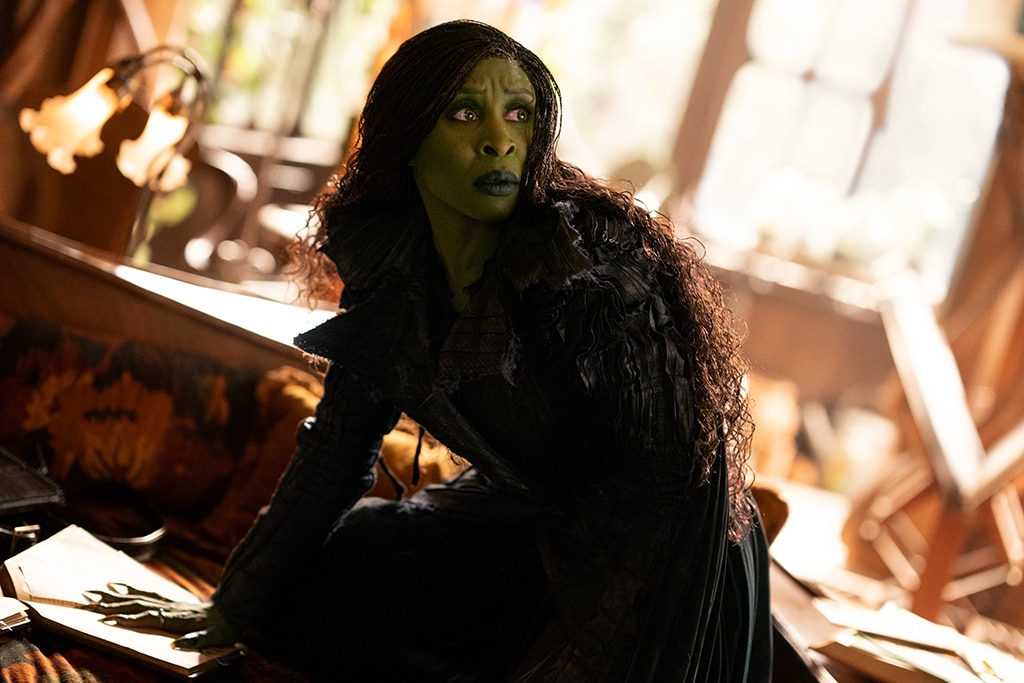
Oh my gosh, it’s just… everything about this story! So, after Elphaba and Nessarose’s dad, Andy Nyman, passes away, Nessarose – played by the amazing Marissa Bode – becomes the governor of Munchkinland. Elphaba knows this happens in the movie, but it’s so much more impactful in the musical because Nessarose actually tells her! It’s such a small detail, but it just adds layers to their relationship, you know?
Because she’s still in love with Boq (played by Ethan Slater), she’s forced him to work as her servant, hoping he’ll eventually reciprocate her feelings. In the film, she tells Boq he’s free to go after Glinda—the girl he truly loves—but he soon discovers a new rule: Munchkins now require travel permits, preventing his departure.
He goes back to Nessarose just before Elphaba arrives, hoping for her sister’s assistance. A new version of the song “The Wicked Witch of the East” features Nessarose remembering their time at Shiz and blaming Elphaba for her troubles. In the stage show, Elphaba magically gives her sister’s silver shoes the power to let Nessarose walk again. But in the movie version, the shoes allow Nessarose to float, and she ultimately returns to using her wheelchair.
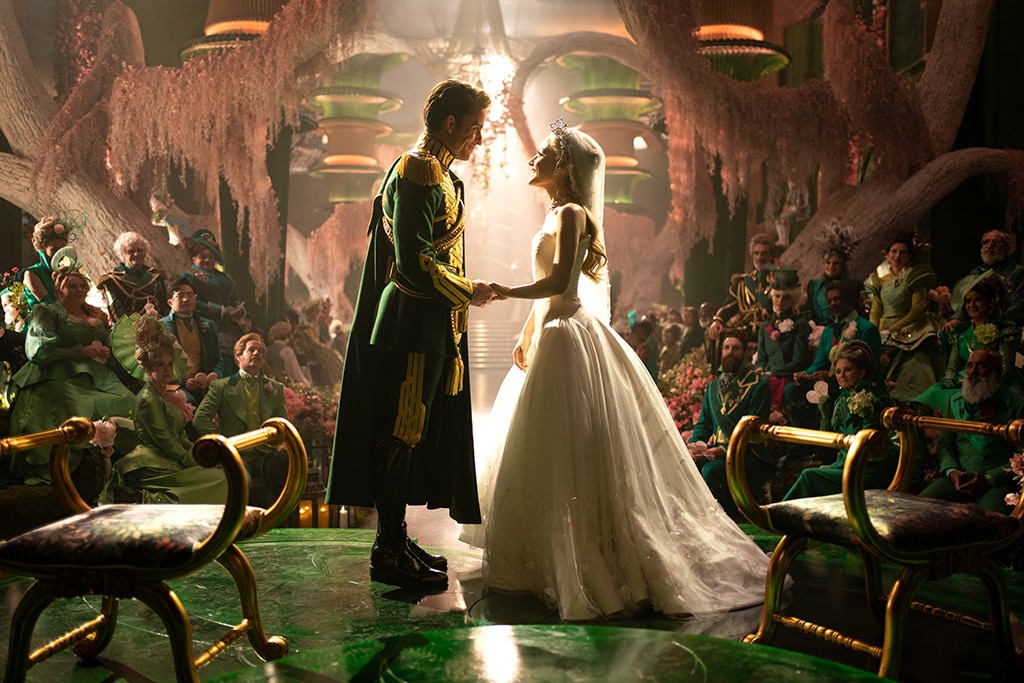
As someone who’s followed this story for years, I have to say the movie adds a really lovely touch by actually showing Glinda and Fiyero’s wedding – something the stage show skips over! Right before that beautiful moment, we see Elphaba arrive in the Emerald City and meet the Wizard, played brilliantly by Jeff Goldblum. There’s a fantastic scene where both the Wizard and Glinda try to get her on their side, and they sing a new version of ‘Wonderful’ – it’s a much fuller song than in the musical, and this time, it’s sung solely by the Wizard. It really expands on that pivotal moment!
Oh my gosh, you won’t BELIEVE what happened! So, the Wizard, he says he’ll free the monkeys, but it’s a total setup! He leads Elphaba down to this secret underground place where he’s been imprisoning talking animals – including poor Doctor Dillamond! It was awful! Elphaba, naturally, lost it and freed them all, and honestly, it was GLORIOUS chaos! They completely ruined Glinda and Fiyero’s wedding before they even got to say their vows! I was screaming, it was the BEST moment!
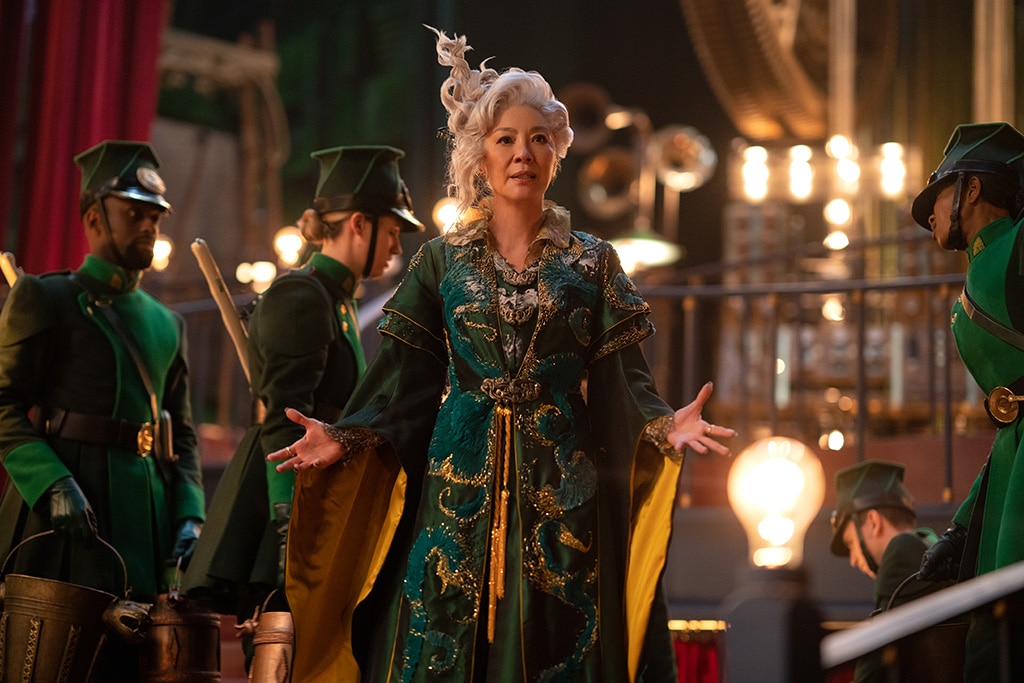
The film shows Madame Morrible creating the cyclone that devastates Oz. During the storm, Nessarose is outside searching for Boq when a house falls on her.
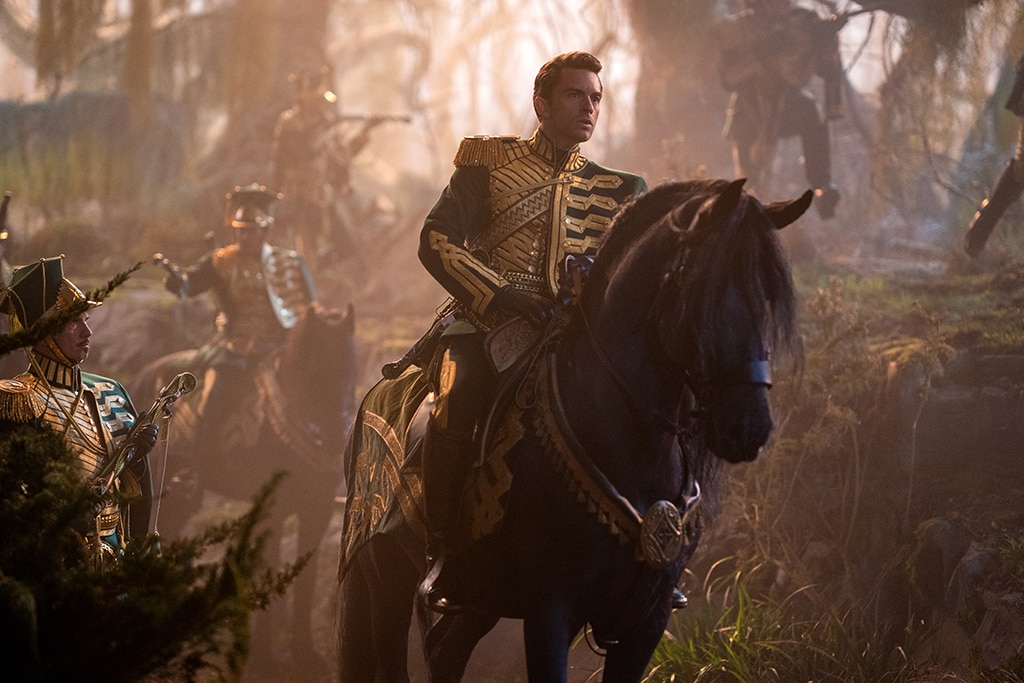
Similar to the musical, Elphaba transforms Fiyero into the Scarecrow while attempting to rescue him from the guards. This version shows the transformation happening—fans actually see straw gradually cover his body.
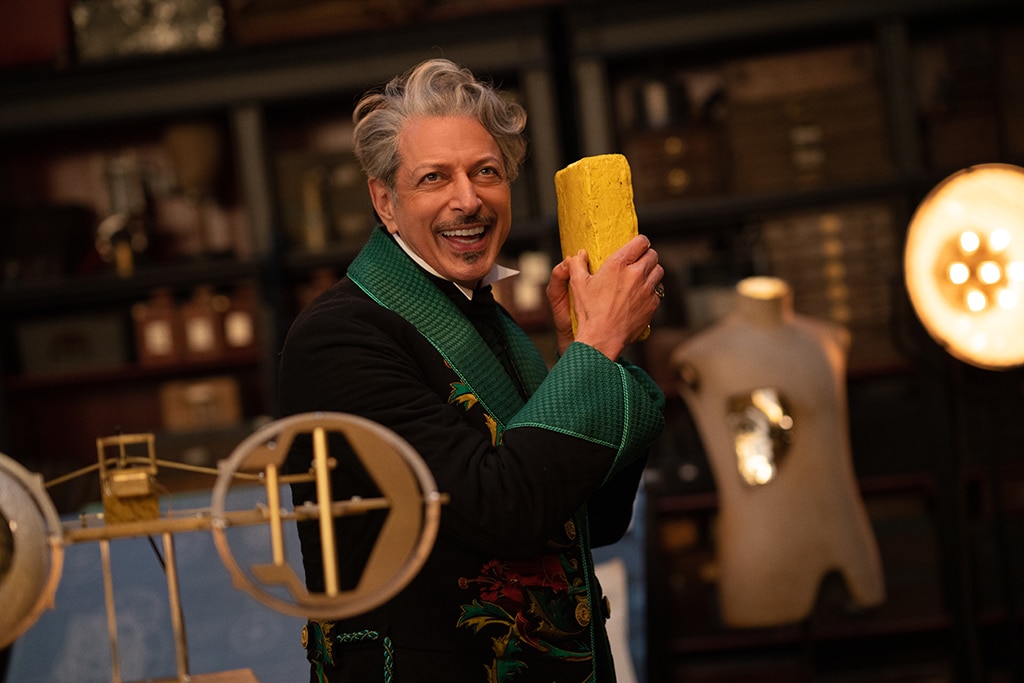
Dorothy (played by Bethany Weaver) and her dog, Toto, are present in the story. While they aren’t directly shown in the stage production, the movie briefly features them. Viewers don’t see Dorothy’s face clearly, but we do see her and her companions – Toto, the Scarecrow, Tin Man, and Cowardly Lion – traveling to the Emerald City and accepting a task from the Wizard: to bring him the broom of the Wicked Witch of the West. Near the film’s end, Dorothy also has a line as she rushes to the Wizard, asking him to wait so she can return home.
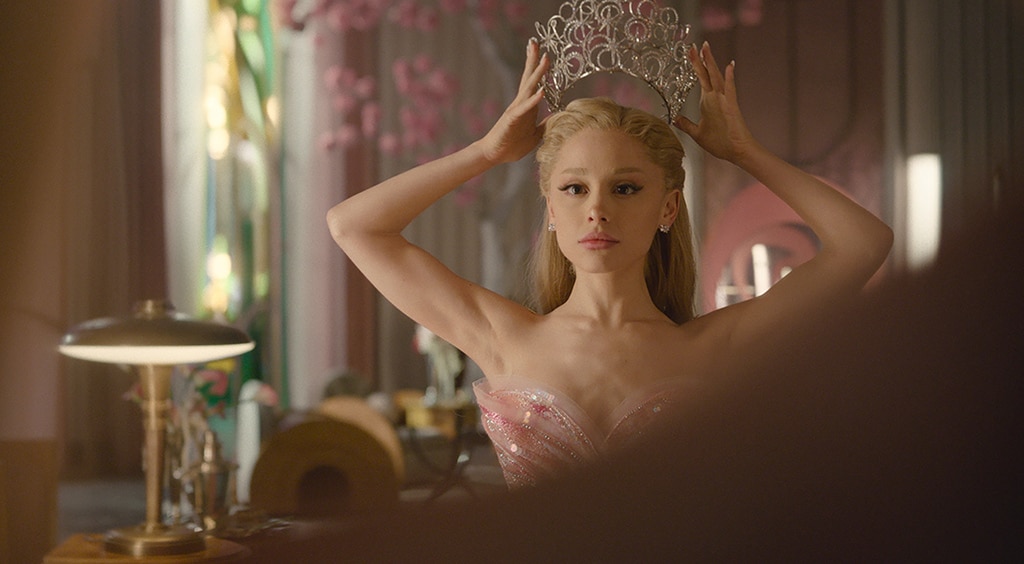
Oh my gosh, Glinda has this amazing new song, “The Girl in the Bubble,” and it’s SO heartbreaking! It’s all about how she’s realizing her perfect life isn’t what it seems, and it’s just… wow. It’s like a total turning point for her! She finally decides she can’t live in her little perfect world anymore – she says it’s time for her ‘bubble to pop!’ And then, get this, she leaves the Emerald City to find Elphaba! She’s going to warn Elphaba about what the Wizard is planning! I’m seriously on the edge of my seat! It’s just… everything!
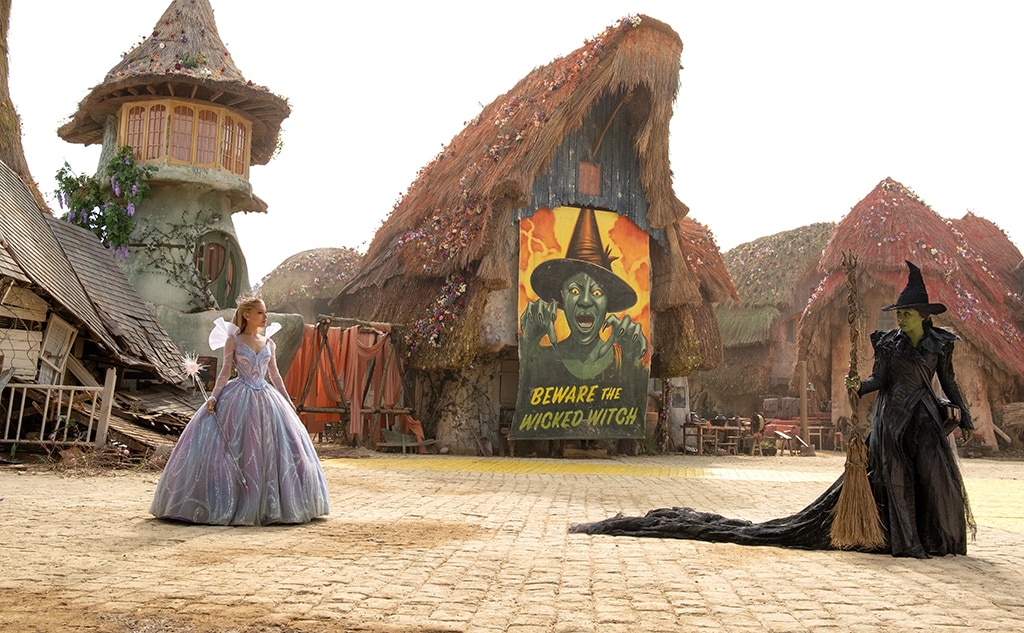
Oh my goodness, the movie just gave us everything we wanted! Like in the musical, Elphaba and Fiyero pretend she’s gone so they can finally be together, but the movie doesn’t stop there! Dr. Dillamond actually comes back to Shiz, which made me cry! And Glinda? She’s learning how to use the Grimmerie! But the best part? Elphaba and Fiyero actually walk off to this magical place beyond Oz! And the final shot? It was perfect! A flashback of Glinda and Elphaba recreating the original musical poster! They totally understood the assignment, it was a beautiful homage!
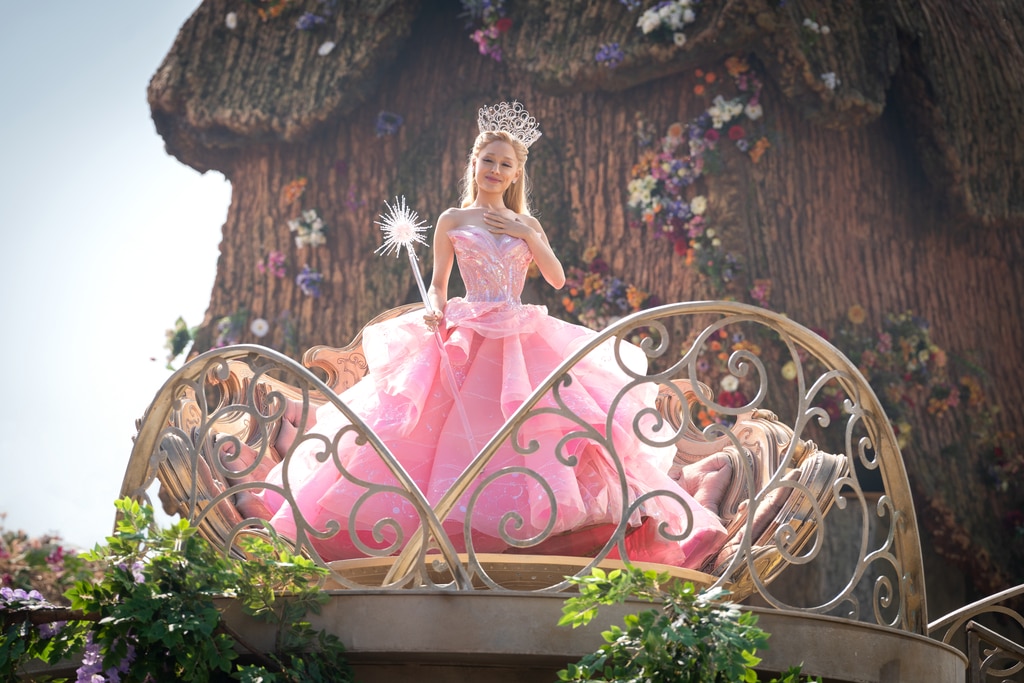
The Clock of the Time Dragon, a puppet show featured in the novel Wicked, appears at the beginning of the Broadway musical, but is only briefly mentioned in the film adaptation. In the movie, Glinda simply uses it to announce Elphaba’s death to the people of Oz.
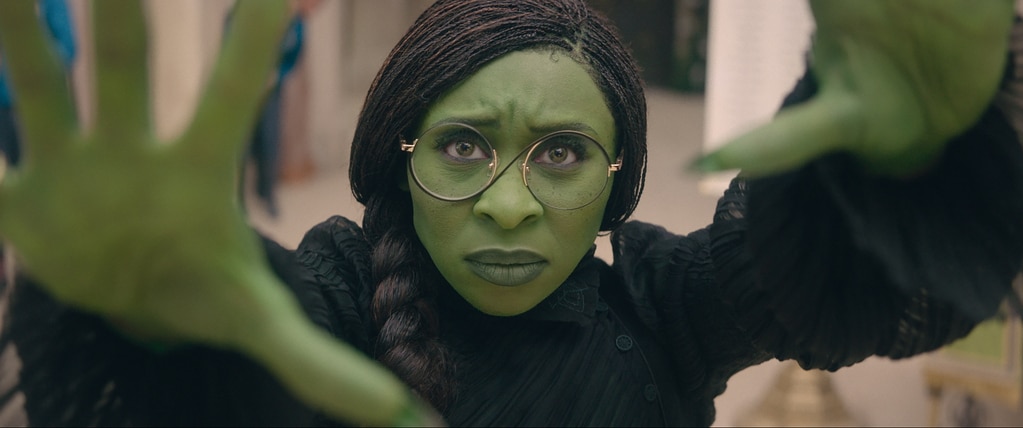
The stage musical hints at Elphaba’s birth, but the movie actually shows her childhood, including early signs of her magical powers. The film also introduces Dulcibear, a talking bear who helps raise Elphaba after her father is shocked by her green skin. Dulcibear’s presence explains why Elphaba is so passionate about protecting animals and their voices – a key theme in both the movie and the stage show.
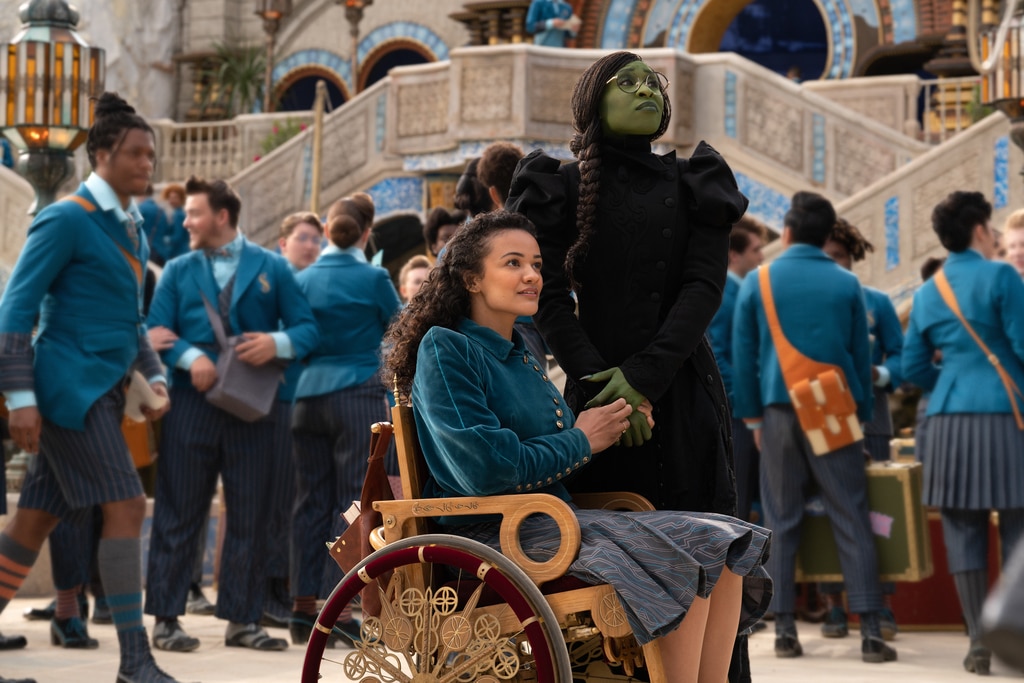
In the musical, Elphaba is already a student at Shiz University to look after her sister, Nessarose. However, in the movie, she only goes to get Nessarose settled, but Madame Morrible notices Elphaba’s abilities and convinces her to enroll. After that, the story follows a similar path: Glinda ends up accidentally volunteering to be Elphaba’s roommate, and the musical explains this happened because of an administrative oversight with the room assignments.
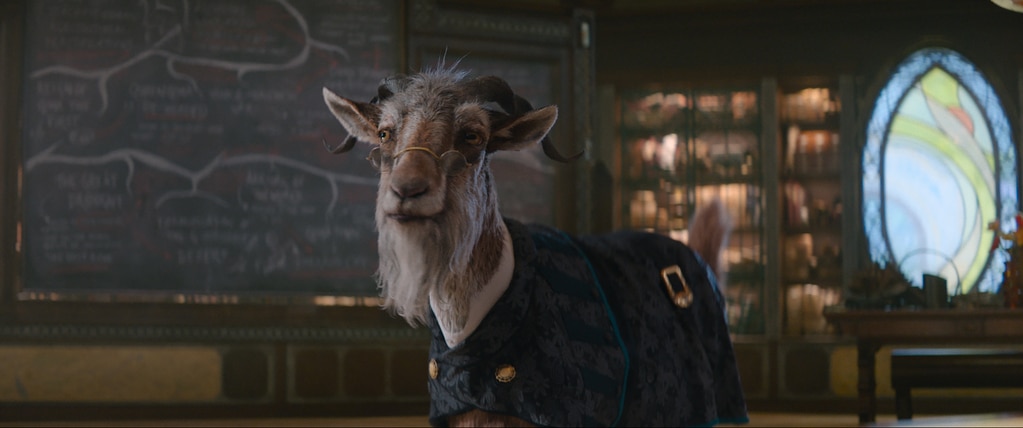
Both the stage and film versions of the story feature Doctor Dillamond, a talking goat who teaches history at Shiz University and warns his students about a growing threat to animals in Oz. The movie expands on this by showing other talking animals involved in a resistance, but these characters aren’t in the musical. The song “Something Bad” happens in Doctor Dillamond’s classroom in the musical, but in the movie, it’s sung by both him and Elphaba in his home.
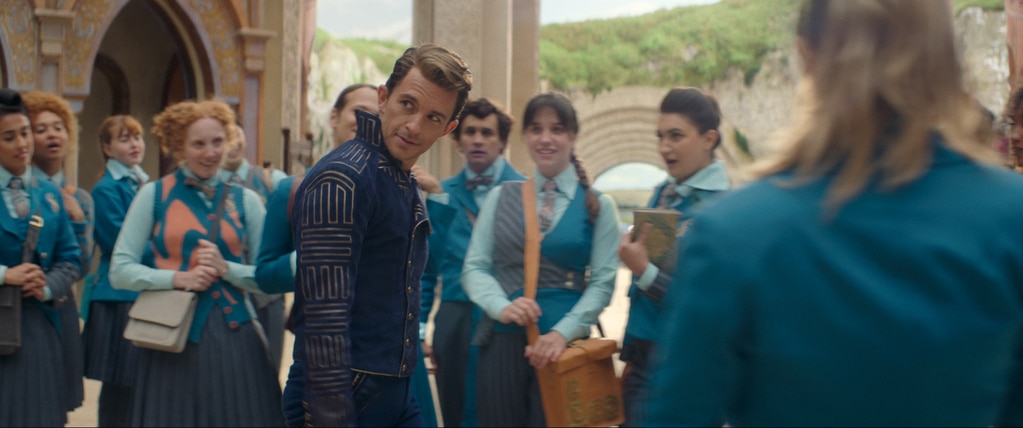
Both the stage musical and the film feature a love triangle involving Glinda, Elphaba, and Fiyero. However, the way Fiyero is introduced and how he first meets Elphaba is different in each version. In the musical, he nearly runs her over with his carriage after arriving in Shiz. In the movie, he almost tramples her while riding through the woods near the university, and he jokes that she was hard to see because she blended in with the plants.
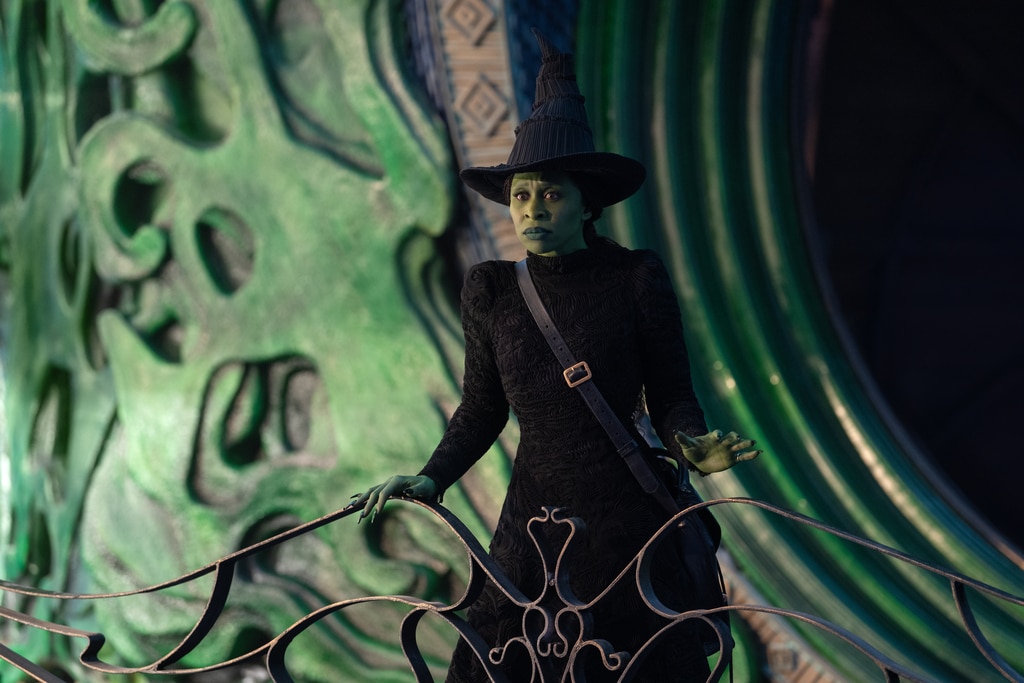
When Doctor Dillamond is fired from Shiz, a new professor arrives and demonstrates new animal cages using a distressed lion cub. This enrages Elphaba, and in the stage version, she causes chaos, allowing her and Fiyero to free the cub. The movie adaptation shows Elphaba using poppies to put everyone to sleep – a nod to the classic 1939 film The Wizard of Oz, where Dorothy and her companions fall asleep in a poppy field.
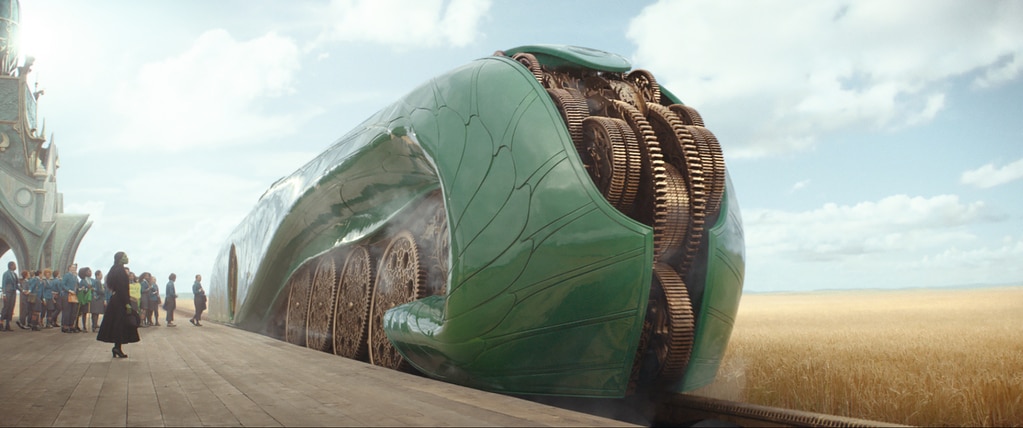
A minor difference between the movie and the musical occurs when Elphaba leaves to see the Wizard. In the film, her father appears at the train station and meets Boq, thanks to an introduction by Nessarose. This moment doesn’t happen in the musical; her father isn’t there to see her off.
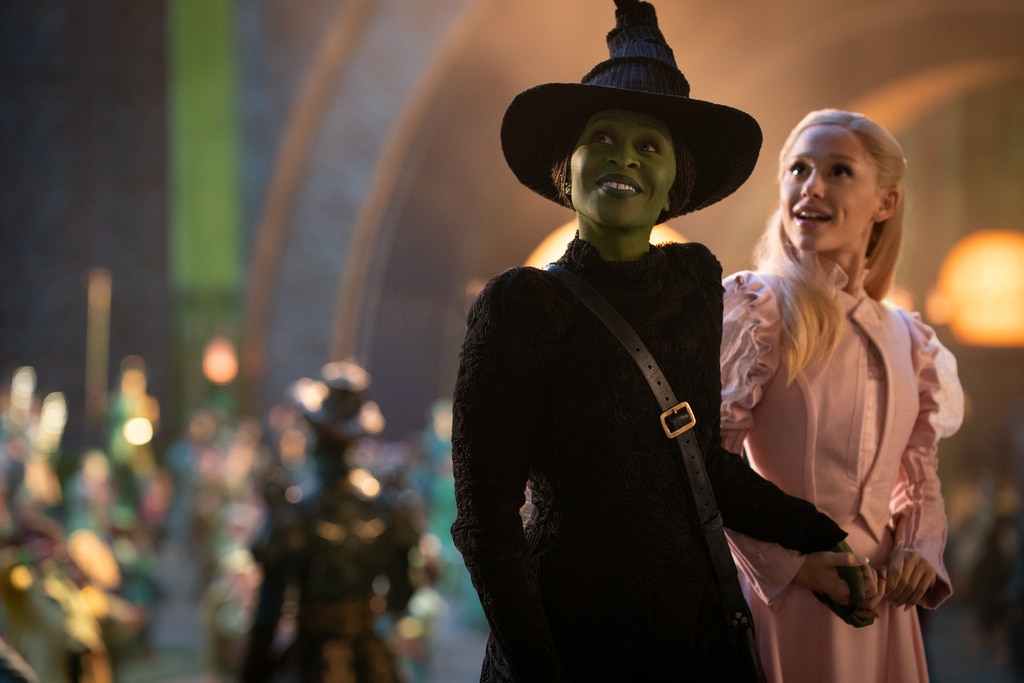
The film delves deeper into the history of the Grimmerie, an old spellbook written in a language no one in present-day Oz understands. While it doesn’t include any completely new songs, a new segment has been added to the song “One Short Day.” The extended cut expands on the Wizard’s story, suggesting he’s the only one who can decipher the Grimmerie – a long-awaited fulfillment of an Ozian prophecy. However, we later discover this isn’t true; the Wizard can’t read it, but Elphaba can.
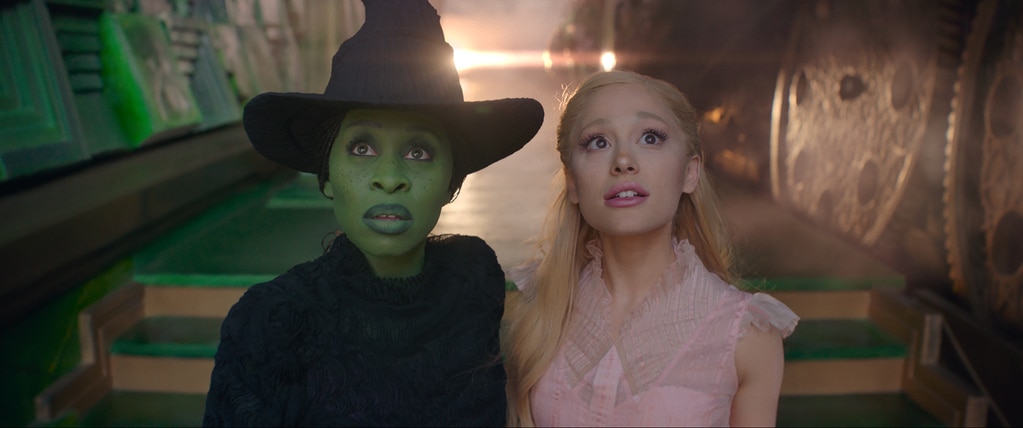
“One Short Day” underwent the biggest transformation from the stage musical to the movie adaptation, and it includes a special treat for fans. The film version features a new performance by original Broadway stars Idina Menzel and Kristin Chenoweth, who play characters not found in the stage show. Credited as Wiz-O-Mania Super Stars, they appear alongside Cynthia Erivo and Ariana Grande in the Emerald City, giving musical theatre lovers an extra dose of familiar faces and heartwarming moments.
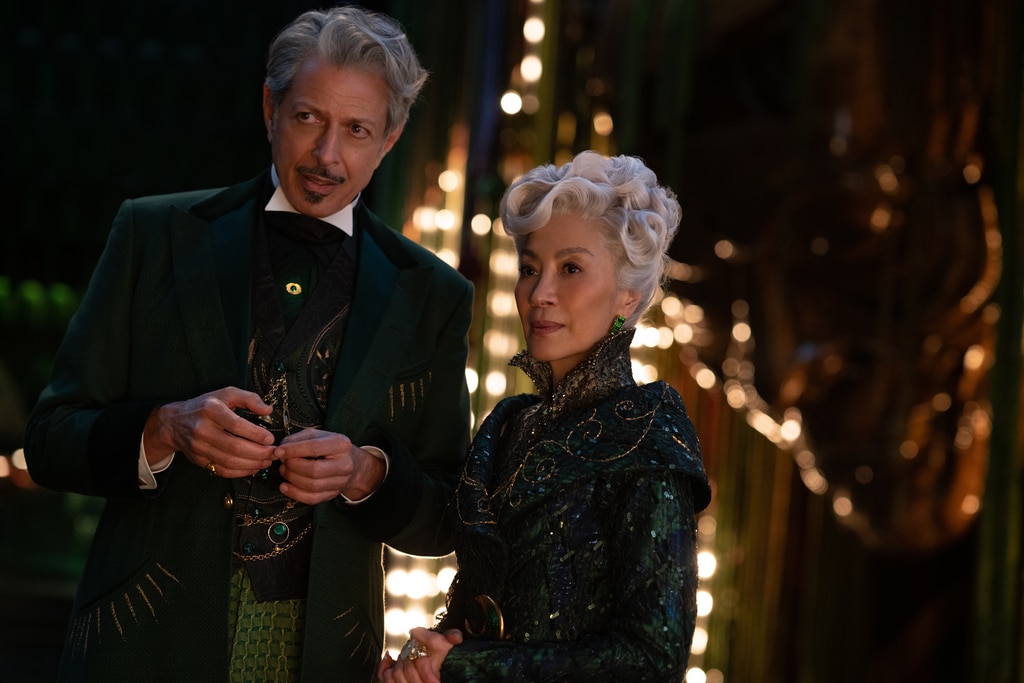
In both the book and film versions of Wicked, the Wizard initially impresses Elphaba and Glinda. In the movie, he does this by showing them a large model of Oz and announcing plans for a road to the Emerald City. He even invites Elphaba and Glinda to choose the road’s color, ultimately resulting in the iconic Yellow Brick Road.
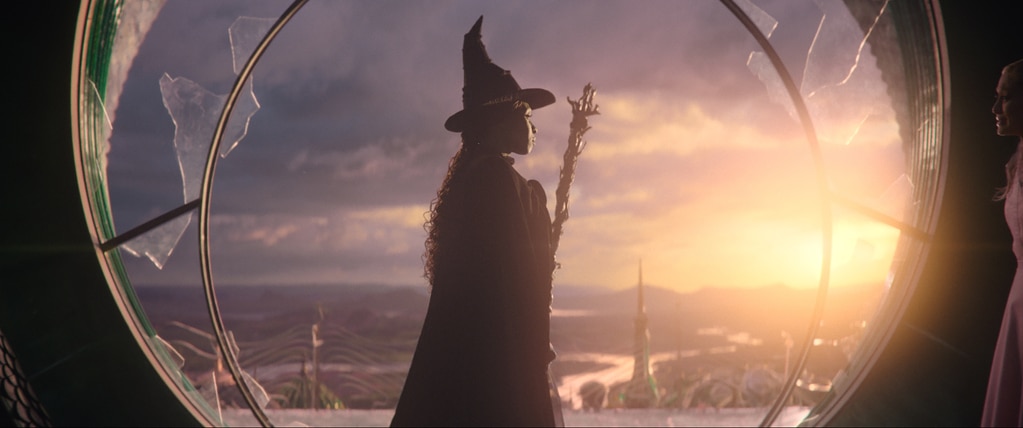
The film’s main climax remains largely the same as the stage play, but Elphaba’s final song is longer and features a new scene. In this scene, she has a vision of her younger self, which motivates her to fly away, abandon the Wizard and Glinda, and start a new life. This flashback doesn’t appear in the original stage production.
Read More
- Best Controller Settings for ARC Raiders
- Stephen Colbert Jokes This Could Be Next Job After Late Show Canceled
- DCU Nightwing Contender Addresses Casting Rumors & Reveals His Other Dream DC Role [Exclusive]
- 10 X-Men Batman Could Beat (Ranked By How Hard It’d Be)
- 7 Home Alone Moments That Still Make No Sense (And #2 Is a Plot Hole)
- Is XRP ETF the New Stock Market Rockstar? Find Out Why Everyone’s Obsessed!
- JRR Tolkien Once Confirmed Lord of the Rings’ 2 Best Scenes (& He’s Right)
- Why Juliana Pasquarosa, Grant Ellis and More Bachelor Duos Have Split
- 10 Most Brutal Acts Of Revenge In Anime History
- James Gunn & Zack Snyder’s $102 Million Remake Arrives Soon on Netflix
2025-11-21 17:19